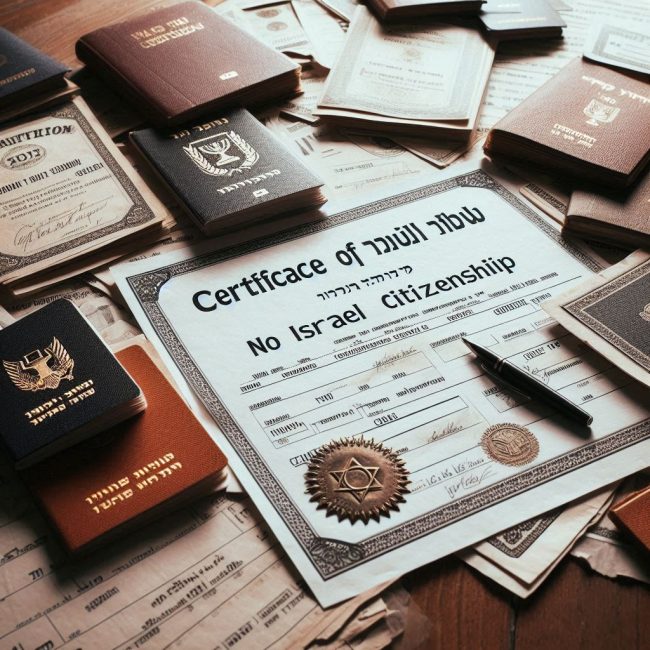Why can IDF soldiers invite their parents to Israel?
In the context of the topic Status for Parents of Soldiers in Israel, it can be said that Israel is a country that values and respects those who stand up for its defense. IDF (Israel Defense Forces) soldiers play a key role in ensuring the security and future of the country. In recognition of their service and their sacrifice, Israel grants them the special privilege of being able to invite their parents to live in Israel and receive official status.
Why it’s important?
Because it’s a recognition of merit. It is the country’s way of saying “thank you” to those who risk their lives for the safety of all Israelis. Many soldiers leave their families in other countries to serve Israel and this privilege allows them to be closer to their parents. Motivation is also an important consideration. Knowing that their service can help their parents move to Israel, young men may be more motivated to serve in the army.
Integration is also important, as parents who come to Israel often become part of Israeli society, which strengthens their children’s ties to the country. Having parents around can also help soldiers adapt more easily to civilian life after their service and support them.
How does it work?
After completing his service (or sometimes during it), the soldier can apply to invite his parents. If the application is approved, the parents are given the opportunity to come to Israel and eventually receive official status. This is not an automatic process – each case is considered individually.
Status for parents of soldiers in Israel
Reunification of non-Jewish parents with children who have served in the Israeli army.
Status for parents of soldiers in Israel. The process of reuniting non-Jewish parents with their children who have served in the Israeli Army (IDF) is governed by special provisions of Israeli law and internal procedures of the Israeli Ministry of Interior (Misrad Apnim).
Legislative framework
1. The Law of Entry into Israel (1952)
2. Nationality Act (1952)
3. Special Regulations of the Israeli Ministry of Interior
It is important to note that these laws do not provide an automatic right to reunification, but provide a framework for dealing with such cases.

Basic terms and conditions
1. Military Service: The child must have served a full term in the IDF or be currently on active duty.
2. Parents’ age: Parents should normally be over 60 years of age, but in exceptional cases applications from parents under this age may be considered.
3. No other children in the country of origin: Preference is given to cases where all children of the parents reside in Israel.
4. Financial independence: Children must be able to provide for their parents in Israel.
5. Absence of obstacles: No serious criminal history or threat to Israel’s security.
Reunification procedure
1. Document Preparation: Gathering all necessary documents (see below).
2. Submission of an application:
– If the parents are outside Israel: to the Israeli consulate in the country of residence.
– If the parents are already in Israel (e.g. on a tourist visa): go to the nearest office of the Population and Immigration Authority.
3. Payment of the fee: Paying the prescribed fee for the application.
4. Initial check: Checking the completeness and correctness of the documents.
5. Interviews: Conducting interviews with family members to confirm the circumstances of the case.
6. Security Check: Checks for security threats.
7. Consideration of the application: Misrad Apnim examines the documents and makes a decision.
8. Obtaining a visa/status:
– In case of a positive decision, a temporary visa (usually B/1) is issued.
– After several years of residence in Israel, it is possible to obtain a permanent residence permit.
Required documents
1. A completed application for family reunification.
2. Parents’ passports.
3. Birth certificates of parents and child soldier.
4. Documents confirming the child’s military service (military card, IDF certificate).
5. Certificate of marital status of parents.
6. Criminal record certificates for parents.
7. Parents’ medical certificates.
8. Evidence of the child soldier’s financial solvency (bank statements, income certificate).
9. A letter of commitment from a child soldier’s willingness to support his parents in Israel.
10. Documents confirming the absence of other children in the country of origin (if applicable).
11. Passport size photos of the parents.
Features and potential complications
1. Length of the process: Consideration can take anywhere from a few months to a year or more.
2. No guarantee: Even if all conditions are met, a positive decision is not guaranteed.
3. Language barrier: You may need the assistance of an interpreter during the application and interview process.
4. Work Restrictions: In the initial stages, parents may not be allowed to work in Israel.
5. Health Insurance: It is necessary to provide health insurance for parents, which can be costly.
6. Periodic renewal of status: Regular renewal of visa/residence permit is required.
7. Changes in legislation: Regulations may change, which may affect the process or the outcome.
8. Special Cases: Special rules may apply in certain situations (for example, if one parent has already died).
Important notes
• The process does not guarantee Israeli citizenship for the parents.
• The parents’ status is usually tied to the child soldier’s status and can be changed if the child’s status changes.
• If denied, you can appeal, but the process can be complicated and time-consuming.
• It is advisable to contact an attorney specializing in Israeli immigration law, especially in complex cases.
• It is important to remember that each case is considered individually, and having all the necessary documents does not guarantee a positive decision.
Status for parents of soldiers in Israel is a process that reflects Israel’s recognition of the soldiers’ contribution to the country’s security and its desire to support their family ties. However, given the complexity and length of the procedure, families are advised to prepare thoroughly and, if possible, to seek professional legal assistance.
______________________
Below you will find a handy navigation box on the topic Family Reunification in Israel.
- Reunification with elderly single parents in Israel
- Law: “Granting status to elderly single parents in Israel”
- Husbands, wives, and same-sex spouses of Israeli citizens (STUPRO procedure)
- Status for parents of soldiers in Israel
- Children from previous marriages in Israel (STUPRO procedure)
- Inviting grandparents to Israel
- Israeli citizenship for minor children of non-Jewish spouses of Jews
- Israeli citizenship for widows or widowers of Jews
- Israeli citizenship for children born out of wedlock
- Humanitarian visa for Israel





